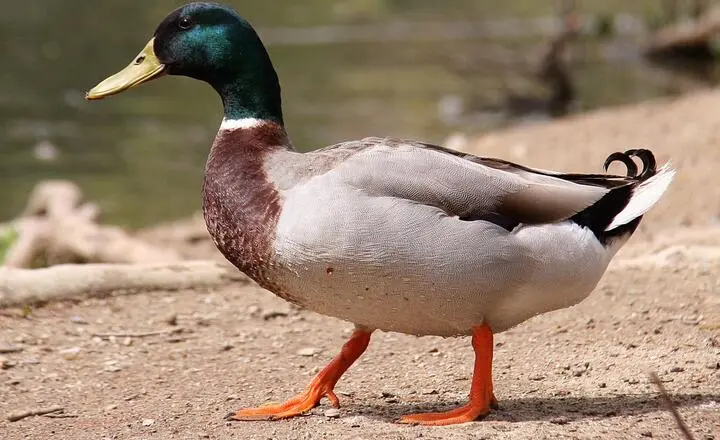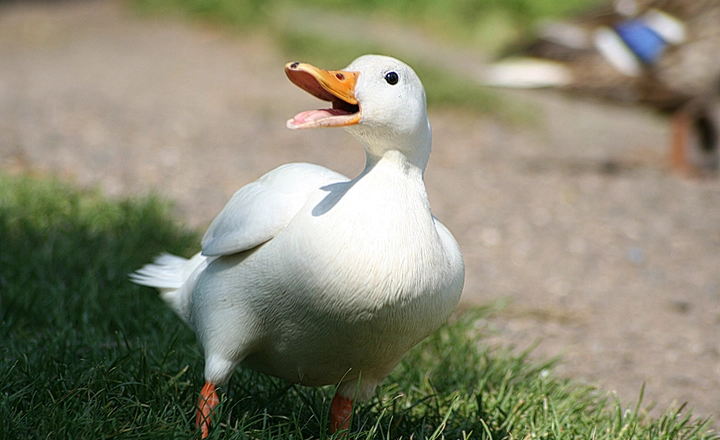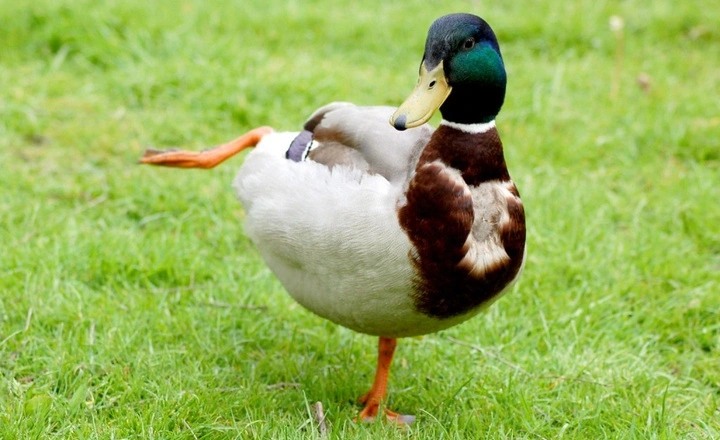Have you ever found yourself mesmerized by the rhythmic opening and closing of your duck’s beak? Watching as it moves in perfect harmony with each breath, almost like a synchronized dance of nature.
It’s a fascinating sight, isn’t it? But have you ever stopped to wonder Why is My Duck Opening and Closing Mouth? What could possibly be the reason behind such a seemingly simple yet endlessly intriguing action?
Why is My Duck Opening and Closing Mouth Repeatedly?
Ducks open and close their mouths repeatedly as a way to regulate their body temperature. By panting, they are able to cool down in hot weather or when they are feeling stressed.
This behavior is also observed in ducks suffering from respiratory issues or dehydration, as it helps them breathe more easily.
They may open and close their mouths if they have stuffed nostrils, as a way to compensate for the difficulty in breathing through their nose.
It is important for duck owners to monitor this behavior closely and address any underlying health issues that may be causing the duck distress.
Trying to Cool Down Their Body System in Summers
Ducks are not well-equipped to handle hot weather due to their thick feathers and lack of sweat glands. This makes them more susceptible to stress and overheating during the summer months.
In heat they resort to panting by opening and closing their mouths in order to regulate their body temperature and cool down.
It is important for duck owners to provide ample shade, fresh water, and proper ventilation to help their ducks cope with the heat.
Ensuring access to cool water for swimming can also help ducks regulate their body temperature effectively during hot weather.
Pretty Stressed
Ducks open and close their mouths repeatedly as a way to regulate their body temperature. By panting, they are able to cool down in hot weather or when they are feeling stressed.
This behavior is also observed in ducks suffering from respiratory issues or dehydration, as it helps them breathe more easily.

Ducks may open and close their mouths if they have stuffed nostrils, as a way to compensate for the difficulty in breathing through their nose.
Suffering From Respiratory Issues
Ducks can indeed experience respiratory issues that may cause them to breathe heavily and open and close their mouths frequently. Respiratory infections, allergies, or exposure to irritants like smoke can all contribute to these symptoms in ducks.
It’s important to monitor the duck closely for other signs of illness such as lethargy, nasal discharge, or changes in appetite.
If you notice your duck exhibiting these symptoms, it’s best to consult a veterinarian who specializes in avian care.
They can provide a proper diagnosis and recommend appropriate treatment options to help alleviate the respiratory issues and improve the duck’s breathing.
Supportive care such as providing a warm and clean environment, ensuring proper nutrition, and administering prescribed medications may be necessary for the duck to recover effectively.
Dehydrated
These ducks require at least one liter of fresh water daily to maintain their health and well-being. Without an adequate water supply, ducks can quickly become dehydrated, leading to various health problems.
The initial sign of dehydration in ducks is often observed through their breathing pattern, with panting and mouth opening and closing being common indicators.
If dehydration is not addressed promptly, ducks may exhibit additional symptoms such as pale combs, diarrhea, lethargy, limpness, unresponsiveness, and even seizures.
It is crucial for duck owners to ensure that their feathered companions have constant access to clean water to prevent dehydration and its associated complications.
Sick
There are a variety of health issues that can cause aquatic birds to exhibit panting, labored breathing, or repeatedly open and close their mouths.

These symptoms can be indicative of conditions such as avian botulism, which is a serious bacterial infection that affects the nervous system of birds. Toxic algal blooms in water bodies where these birds reside can lead to respiratory distress and difficulty breathing.
Certain parasites like lungworms can also affect the respiratory system of aquatic birds, causing them to display abnormal breathing patterns.
It is crucial for bird enthusiasts and wildlife experts to closely monitor the behavior and health of aquatic birds experiencing these symptoms in order to provide appropriate medical treatment and support their recovery.
Stuffed Nostrils
When ducks experience stuffed nostrils due to scratches, bubbles, discharge, or crustiness, it can indeed impede their ability to breathe normally.
They may resort to opening and closing their mouths repeatedly in an effort to get sufficient air. This behavior is a natural response to ensure they can continue breathing effectively despite the obstruction in their nostrils.
It is important for duck owners or those observing wild ducks to be aware of this behavior and take appropriate action if necessary.
Keeping water sources clean and providing proper care can help prevent issues with stuffed nostrils in ducks.
Why does it Look like my Ducks are Panting?
Ducks do not have sweat glands like humans, so they regulate their body temperature by panting. When ducks pant, it helps them release excess heat and cool down their bodies. This behavior is common in ducks during hot weather or when they are feeling stressed.

If your ducks are panting and opening and closing their mouths repeatedly, it could be a sign that they are overheated or experiencing some sort of discomfort. Make sure they have access to shade, fresh water for swimming, and a cool place to rest.
Conclusion
Understanding the reasons behind why your duck may be opening and closing its mouth is crucial for ensuring its health and well-being. It could be a sign of respiratory issues, heat stress, or even a behavioral response.
By closely observing your duck’s behavior and seeking veterinary advice if necessary, you can address any underlying problems and provide appropriate care. Remember to also consider factors such as temperature, humidity, and diet that could be affecting your duck’s behavior.
FAQs
What are ducks attracted to?
Ducks are naturally attracted to water sources, as they are aquatic birds that enjoy swimming and foraging for food in ponds, lakes, and rivers.
How to tell a duck is happy?
A happy duck will often have a relaxed posture, with its feathers smooth and not puffed up. It may also wag its tail or flap its wings in a playful manner.
